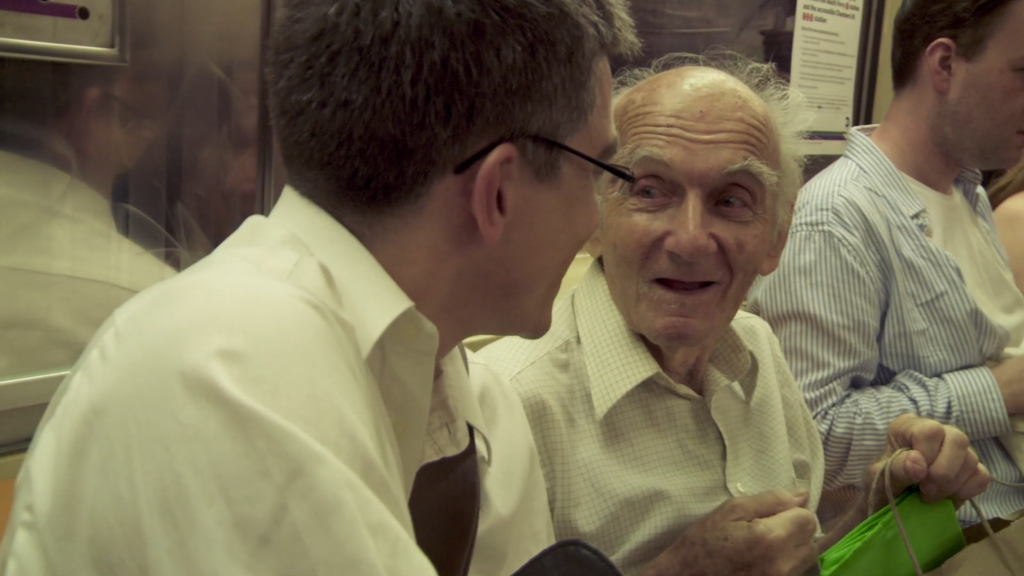Walter Feiden
At the New York University screening of a Holocaust-related film, Walter handed me his business card, with the handwritten title of „historian“ added to his name and address.
Walter grew up in my hometown Vienna, Austria, as the son of a Jewish tailor and a Christian woman, who tried but failed to save him from the Lodz ghetto. His younger sister died before the war from a ruptured appendix while on vacation at a spa near Vienna. Walter’s father and stepmother perished in one of the camps, while the descendants of his biological mother in Austria refuse to take his calls.
In Auschwitz, Walter was selected to work at the Budy fish farm, where he occasionally managed to slip a fish into his boot. After a death march to Buchenwald, Walter was liberated by the US Army and began to work as a translator due to his knowledge of German. In America, Walter became a sales-rep for watch-bands and raised two children with his wife Lee. As a widower he spent the rest of his life in his Queens apartment, from where he went on trips to Manhattan. For many years he busied himself with historical research and presented his war-time experiences at numerous venues. He was among the first survivors to see evidence of his imprisonment at Auschwitz in 2006, when the German Bundesarchiv in Bad Arolson finally made these documents available. In 2014 he was severely injured by a hit-and-run driver around the corner from his house and never fully recovered. He passed away at his son’s house on August 16, 2017 and rests at Sharon Garden’s Cemetery in Valhalla, New York.
Interview Walter Feiden USC Shoah Foundation
Article about Walter’s first visit to the Bundesarchiv in Bad Arolsen
